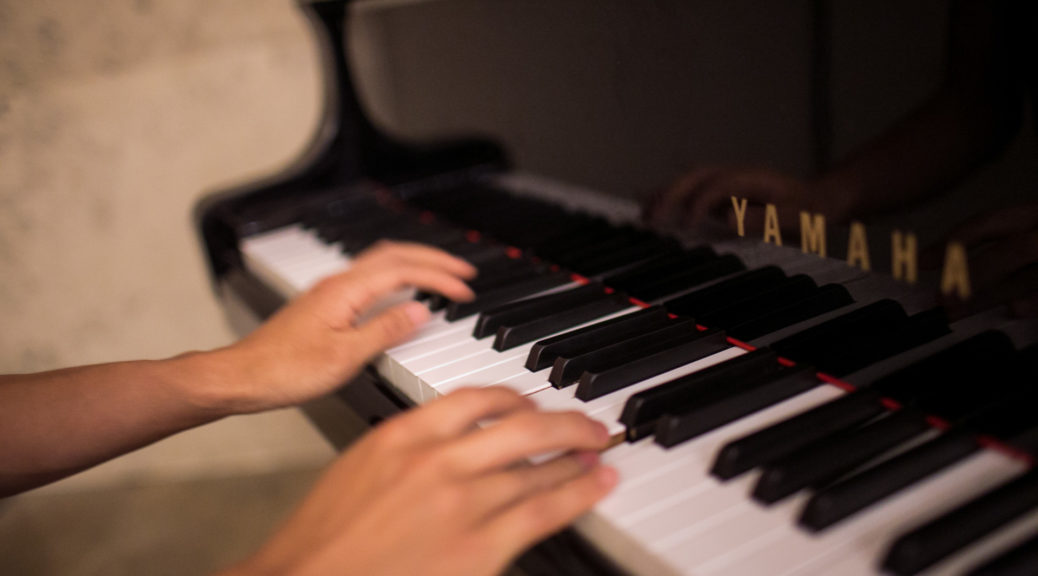I’m working on three solo piano pieces composed by Ravel right now, and they’re all kind of obnoxiously difficult. What are they? And why oh why?
Jeux d’eau – one of his earliest piano compositions. It’s weirdly straightforward to play considering how complex it sounds, but granted there are lots of notes. Very characteristic of his French Impressionistic style of textures and unusual harmonies.
Toccata, Mov. 6 of the Le tombeau de Couperin suite. – musically simple, but utterly frenetic. It might call for the fastest sustained vertical and horizontal arm travel speed of any piece I’ve ever played, which is a funny metric but totally what makes this piece difficult.
Ondine, Mov. 1 of the Gaspard de la nuit suite. – it’s based on a poem about a seductive water nymph. Water plus sinister means bad news because, on solo piano, Ravel builds that atmosphere through subtly finessed textures and threads simple melodies through that blur. And that stuff is hard to play! Here, let me describe. Type this:
opoopoopopoopoop
Okay, now try typing it really fast, as fast as you can! Try to get it down to 2 seconds. You have to use your right ring finger and pinky, no cheating with two hands or anything!
Now, do it that quickly but also as quietly as you possibly can. A whole new dimension of difficulty trying to control the spazzing of your wrist to be as controlled as possible, right?
Okay, now do that for 2 minutes straight! And then do other various hard things for 4 more minutes! That’s Ondine in a nutshell!

Ironically, this type of sustained controlled playing is quite bad for my shaky hands, which makes Impressionism one of my worst genres to try playing. Still, I can’t help it, and I’ve been in this phase for two years now. Ahh, why can’t I shake this Impressionism obsession?
I guess it’s because I enjoy learning difficult piano pieces. Listening to the melody begin to emerge from the mess of notes I’m getting under my fingers. The feeling of accomplishment from pushing my hands to the limit to produce something beautiful. Both are somewhat addicting feelings for a pianist, I think.
I listen to music constantly, almost close to every waking moment. I try to balance that consumption with my own production (a balance I’m seeking with all disciplines), and even though I play a good amount of viola in orchestra and chamber groups, it doesn’t feel complete. It’s different when learning Ravel because when I sit down, I don’t want to leave. Ravel’s music is engrossing. It triggers my obsessiveness and that valuable feeling that I’m going somewhere, working towards something. Yes, even if it’s emulating a seductive water nymph.
PS. the opoopoop being shittily crass was actually kind of accidental. I kind of forgot what is under the right ring and pinky fingers on the top row of normal keyboards (it’s rllrlrrl to me). Haha, dunno what poop adds to the experimental experience.
PPS. performing at commencement next week! then playing in two different quartets! then working Tchaik’s piano trio 1st mov.! Research block has been good for music.
